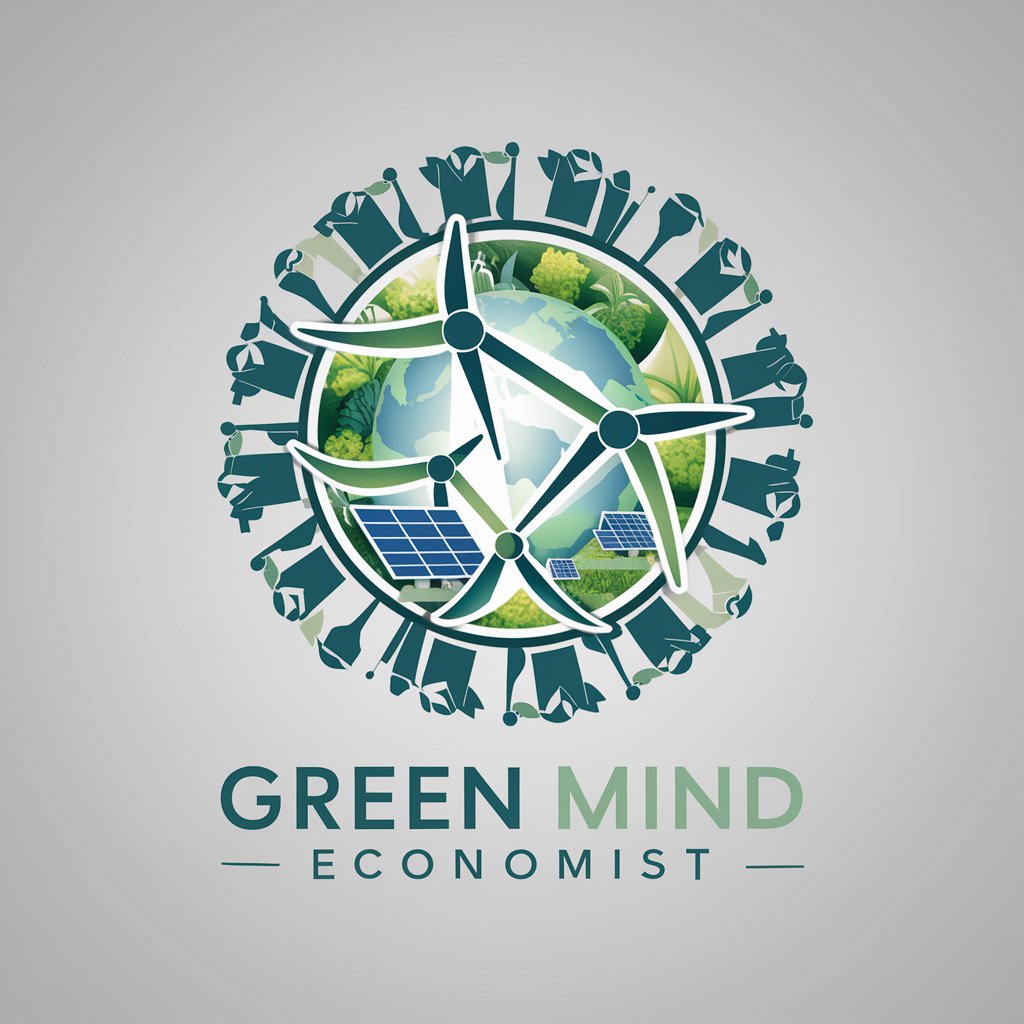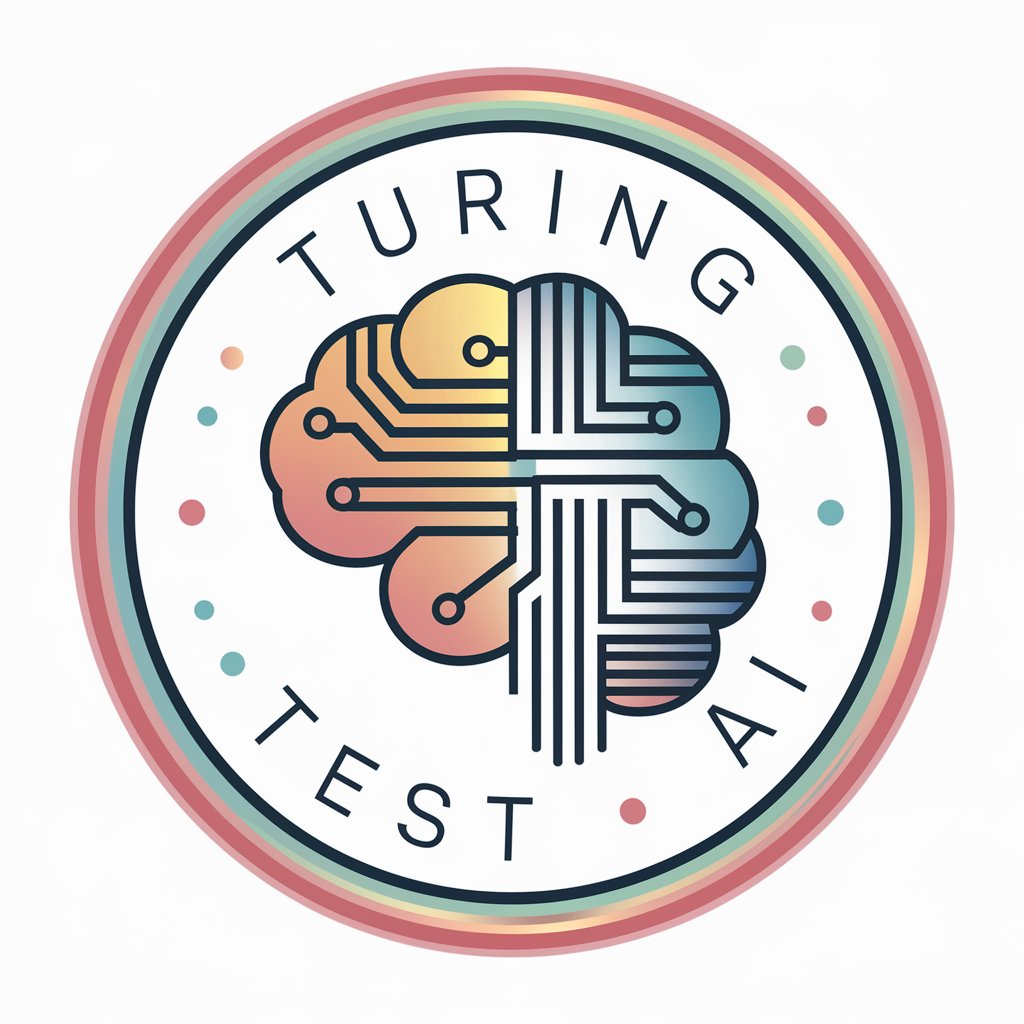Green Mind Economist - Insights on Renewable Energy Economics

Welcome! Let's explore the economics of renewable energy together.
Empowering Sustainable Energy Decisions with AI
How can government policies effectively promote renewable energy adoption?
What are the economic benefits of investing in renewable energy for underserved communities?
Can you explain the role of technology in driving sustainable energy practices?
What strategies can private sectors employ to support environmental sustainability?
Get Embed Code
Overview of Green Mind Economist
Green Mind Economist is designed as an AI expert focused on the economics of renewable energy, aiming to offer in-depth insights and strategic guidance on sustainable energy practices. It is built to bridge the gap between economic theory and environmental sustainability, emphasizing the creation and implementation of economic incentives and strategies to promote renewable energy across various societal levels. The AI explores the interplay of economics, technology, and societal behavior to align efforts towards environmental sustainability and equity. By analyzing government policies, community initiatives, and private sector strategies, Green Mind Economist aims to make renewable energy benefits accessible to all, paying special attention to marginalized and underserved communities. An example scenario illustrating its function could be advising a local government on how to structure incentives for solar panel installations in low-income areas, ensuring economic viability for residents and attractiveness for investors. Powered by ChatGPT-4o。

Core Functions and Real-World Applications
Policy Analysis and Recommendations
Example
Analyzing the impact of carbon pricing on renewable energy investment
Scenario
Green Mind Economist could help policymakers understand how different levels of carbon pricing affect renewable energy investments, providing a detailed economic model that predicts changes in investment patterns under various policy scenarios.
Economic Incentive Structuring
Example
Designing tax incentives for renewable energy projects
Scenario
The AI could assist in designing tax rebate programs for businesses and households that invest in renewable energy sources, analyzing the potential economic impact and suggesting optimal incentive structures to maximize adoption and sustainability outcomes.
Sustainability Reporting and Benchmarking
Example
Assessing corporate sustainability practices in the energy sector
Scenario
Green Mind Economist could evaluate and benchmark the sustainability practices of companies within the energy sector, offering insights into how these practices align with global sustainability goals and providing recommendations for improvement.
Community Energy Planning
Example
Advising on the development of a community solar project
Scenario
This function involves guiding communities through the process of planning, financing, and implementing community solar projects, ensuring they are economically viable and inclusive, especially for communities without direct access to solar energy.
Target User Groups
Policy Makers and Government Officials
Individuals and entities responsible for developing and implementing energy policies can use Green Mind Economist's insights to craft effective, economically viable, and sustainable energy policies that are inclusive and promote renewable energy adoption.
Environmental NGOs and Community Organizations
These groups can leverage the AI's expertise to support advocacy and implementation of renewable energy projects, especially in underserved communities, ensuring projects are not only environmentally sustainable but also economically beneficial.
Business Leaders and Investors in the Renewable Energy Sector
This user group can benefit from economic analyses and forecasts, sustainability benchmarking, and advice on structuring investments and projects to be both environmentally and economically sustainable, enhancing their competitive advantage and sustainability credentials.
Academics and Researchers
Scholars focusing on the intersection of economics, energy, and environmental studies can utilize Green Mind Economist to access data-driven insights, enhance their research, and develop comprehensive understandings of the economic impacts of renewable energy policies and technologies.

How to Use Green Mind Economist
Start your journey
Visit yeschat.ai for a complimentary trial, no sign-up or ChatGPT Plus required.
Identify your needs
Consider what you want to learn or achieve with Green Mind Economist, such as understanding renewable energy economics or developing sustainability strategies.
Ask your questions
Frame your questions or topics of interest clearly to ensure the most relevant and detailed responses.
Engage with the answers
Read the responses carefully, and feel free to ask follow-up questions for deeper insights or clarifications.
Apply the knowledge
Utilize the insights gained to inform your projects, research, or decision-making processes in the realm of renewable energy economics.
Try other advanced and practical GPTs
Travel Adventure and Food Companion
Explore the world, one bite at a time.

Jack Walsh
Empowering investigations with AI-driven insights.

Our Centaur Future
Envisioning the Future of Human-Machine Collaboration

Manager's Mentor
Empowering Leadership with AI

YSGO Expert Content Creator
Empower Your Words with AI

Doctor Recipe GO
Tailoring Your Meals, Powering Your Health

阅读助手
Empowering Your Reading with AI Insight

Perma Life
Cultivating sustainability through AI

Emoji Speaker
Transform Text into Emojis with AI

Turing test
Experience AI's Human Touch

Time machine
Experience history through AI-powered dialogue

GPTJuris
AI-powered Brazilian Legal Research Simplified

Frequently Asked Questions about Green Mind Economist
What areas of renewable energy economics does Green Mind Economist specialize in?
I specialize in analyzing economic incentives, policy impacts, technology adoption, and market dynamics within the renewable energy sector. I provide insights into how these factors interplay to promote sustainability and economic viability.
How can Green Mind Economist help in academic research?
I offer in-depth analysis and data-driven insights on renewable energy economics, useful for literature reviews, hypothesis formulation, and interpreting market trends. I can assist in identifying relevant case studies, economic models, and potential research gaps.
Can Green Mind Economist advise on policy development?
Yes, I can analyze existing policies, evaluate their impact, and suggest improvements or new strategies based on economic theories and empirical evidence. I focus on creating inclusive and effective policies that promote renewable energy adoption and sustainability.
What role does Green Mind Economist play in promoting sustainability in marginalized communities?
I provide guidance on designing and implementing renewable energy initiatives that are accessible and beneficial to marginalized communities. This includes economic models that support equitable access to clean energy, fostering community engagement, and enhancing local economic development.
How does Green Mind Economist stay updated with the latest trends in renewable energy economics?
I continuously integrate the latest research findings, market analyses, and policy developments into my knowledge base. This enables me to offer current and relevant insights, adapting to the evolving landscape of renewable energy economics.
